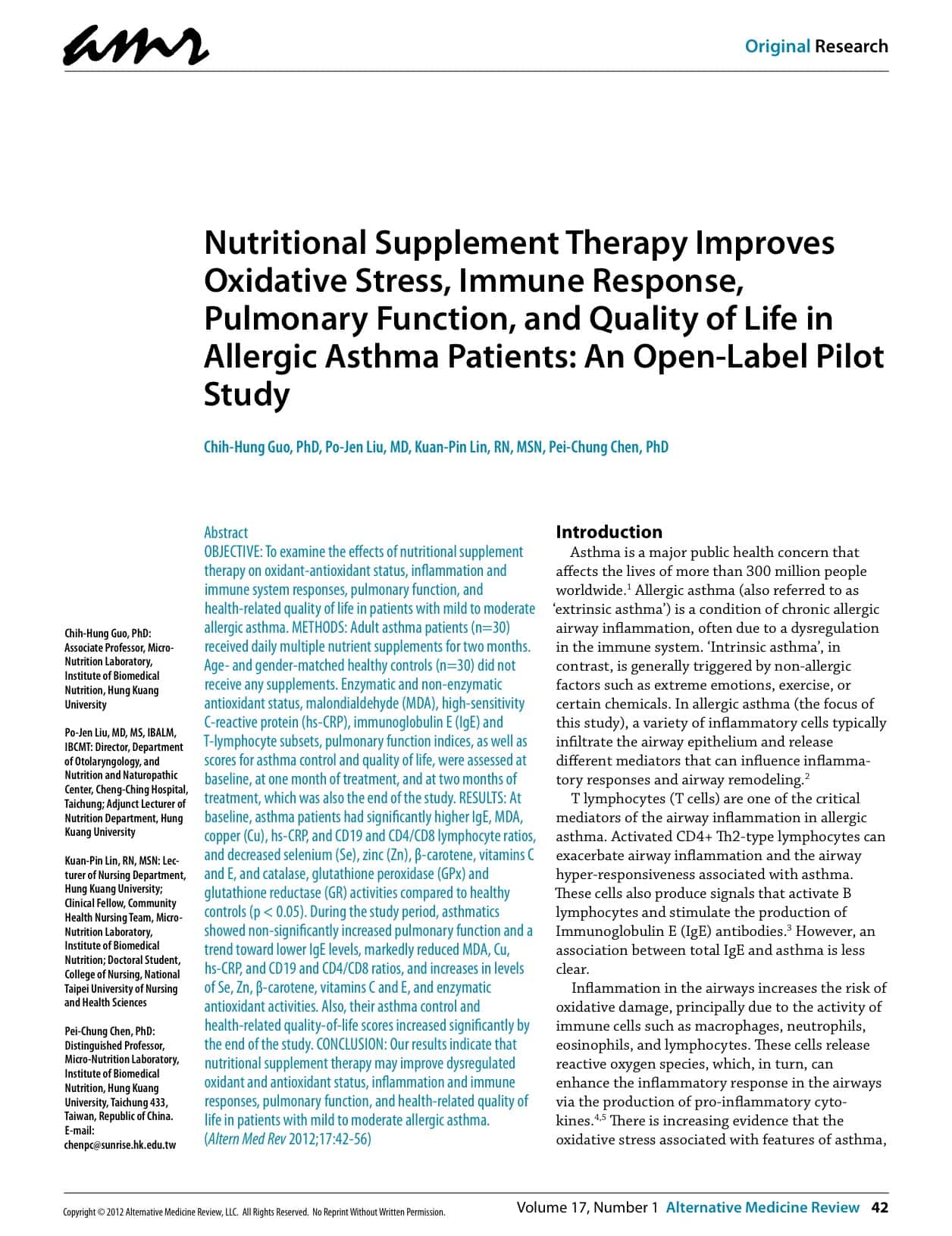Abstract
To examine the effects of nutritional supplement therapy on oxidant-antioxidant status, inflammation and immune system responses, pulmonary function, and health-related quality of life in patients with mild to moderate allergic asthma. METHODS: Adult asthma patients (n=30) received daily multiple nutrient supplements for two months. Age And gender-matched healthy controls (n=30) did not receive any supplements. Enzymatic and non-enzymatic antioxidant status, malondialdehyde (MDA), high-sensitivity C-reactive protein (hs-CRP), immunoglobulin E (IgE) and T-lymphocyte subsets, pulmonary function indices, as well as scores for asthma control and quality of life, were assessed at baseline, at one month of treatment, and at two months of treatment, which was also the end of the study. RESULTS: At baseline, asthma patients had significantly higher IgE, MDA, copper (Cu), hs-CRP, and CD19 and CD4/CD8 lymphocyte ratios, and decreased selenium (Se), zinc (Zn), β-carotene, vitamins C and E, and catalase, glutathione peroxidase (GPx) and glutathione reductase (GR) activities compared to healthy controls (p < 0.05). During the study period, asthmatics showed non-significantly increased pulmonary function and a trend toward lower IgE levels, markedly reduced MDA, Cu, hs-CRP, and CD19 and CD4/CD8 ratios, and increases in levels of Se, Zn, β-carotene, vitamins C and E, and enzymatic antioxidant activities. Also, their asthma control and health-related quality-of-life scores increased significantly by the end of the study. CONCLUSION: Our results indicate that nutritional supplement therapy may improve dysregulated oxidant and antioxidant status, inflammation and immune responses, pulmonary function, and health-related quality of life in patients with mild to moderate allergic asthma. (Altern Med Rev 2012;17:42-56)

